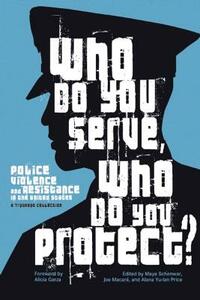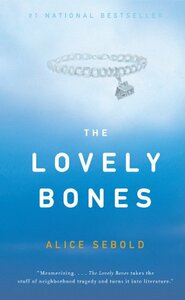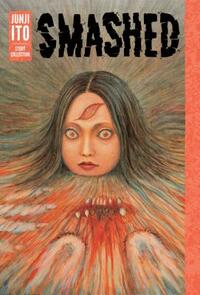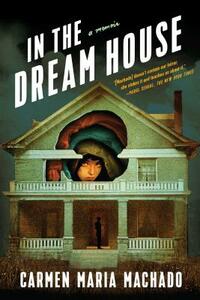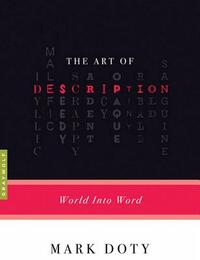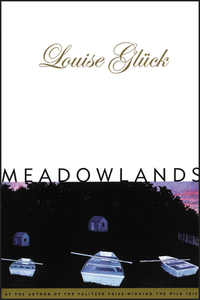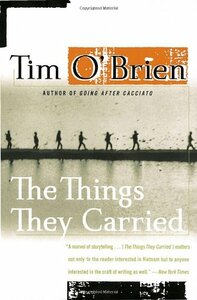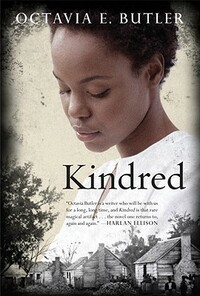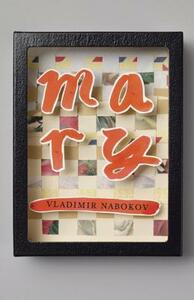Take a photo of a barcode or cover
blurstoftimes's Reviews (61)
Phenomenal collection. All of these articles are expertly written and thoroughly poignant. These stories about law enforcement failing to protect the communities that they serve is a dominant vindication for much of the radical and transformative ideals that are brought up and persuaded to readers in hopes of universal change. My favorite is “Our Dreams, Our History”—which talked about the intersection of Black People and Native Americans. Not only was it insightful and well-written, but it was frightening evidence that Native Americans—a marginalized group who have been colonized and subsequently brutalized by police—are just as displaced and terrorized as Black and Latinx people. Whether it be context about the ongoing corruption of Chicago Police Departments or the additional punishment that pregnant women face in our legal system, this book is successful in presenting detailed stories about marginalized groups that are facing an ongoing battle with police who simply don’t serve to protect them. It’s a harrowing but immensely important read.
By this point, Ito has become one of the most renowned manga artists in the world, and an innovator for the horror genre as a whole. So it’s a good thing that this collection of 13 stories—which range from demented to just downright dreary—are an excellent showcase of his skills in storytelling, dark, gruesome canvases, and, of course, the art of the scare.
There are some clear classics that have stained my mind with their originality and looming horror details. “Earthbound” was the first to lock me into Ito’s world, with its engrossing protagonist and the unnerving concept of being fixed firmly to the ground without exit. Another good one is the surprisingly gory “The Mystery of The Haunted House”, as its reinvigoration of a tired horror trope works so well given the innocence of the townie main characters and the evil that lies at the end.
“Roar” “Bloodsucking Darkness”, and “Death Row Doorbell” are more enthralling in their plot and ingenuity than anything else. I loved them because not only did these keep me on the edge of my seat, they were quite ambitious as far as short stories go. But there were stories that did none of that and merely just took up time and effort to read. “In Mirror Valley” actually dragged on so long that the horror elements felt deflated by the end. Another laughable story was “Library Vision.” If you couldn’t guess by its banal title, it’s basically about a guy who can’t stop reading books; it’s the worst of the bunch.
Thankfully, these less-developed narratives just make the larger and more robust ones stand out stronger. As a collection of short stories go, these are pretty solid, and when they’re not, they are still subverting old bits of folklore or “be careful what you wish for”-type stories for a new and bold
perspective that seems to be paying respect to the simplistic catch of fables. Ito’s noir-stained panels are also iconic and, if all else fails, should do more than the narrative will to grab your attention. And that’s why we’re here folks. This isn’t Shakespeare, it’s visceral, spooky fun.
There are some clear classics that have stained my mind with their originality and looming horror details. “Earthbound” was the first to lock me into Ito’s world, with its engrossing protagonist and the unnerving concept of being fixed firmly to the ground without exit. Another good one is the surprisingly gory “The Mystery of The Haunted House”, as its reinvigoration of a tired horror trope works so well given the innocence of the townie main characters and the evil that lies at the end.
“Roar” “Bloodsucking Darkness”, and “Death Row Doorbell” are more enthralling in their plot and ingenuity than anything else. I loved them because not only did these keep me on the edge of my seat, they were quite ambitious as far as short stories go. But there were stories that did none of that and merely just took up time and effort to read. “In Mirror Valley” actually dragged on so long that the horror elements felt deflated by the end. Another laughable story was “Library Vision.” If you couldn’t guess by its banal title, it’s basically about a guy who can’t stop reading books; it’s the worst of the bunch.
Thankfully, these less-developed narratives just make the larger and more robust ones stand out stronger. As a collection of short stories go, these are pretty solid, and when they’re not, they are still subverting old bits of folklore or “be careful what you wish for”-type stories for a new and bold
perspective that seems to be paying respect to the simplistic catch of fables. Ito’s noir-stained panels are also iconic and, if all else fails, should do more than the narrative will to grab your attention. And that’s why we’re here folks. This isn’t Shakespeare, it’s visceral, spooky fun.
From the very beginning, Machado vows not to mince her words. This is a story about an abusive queer relationship, but it is also about many other things; just a few of them: Star Trek, process art pieces, the fragility of time, and the chaos of liminal human romance within the intersection of caustic psychological actions and hope for a future that is DOA. She brilliantly relates her experiences to other queer women in a way that is not only insightful but groundbreaking for a creative nonfiction work this truthful and ambitious.
Machado is a wonderfully intelligent and charismatic writer; her bouts of brilliance never cease. Whether it is taking apart queer history to underline society’s misconceptions about abuse or simply creating a nonlinear timeline about her terrifying experiences, she does so with a surprising amount of light-footed poignancy: perfectly weighted but never ceasing to startle you. Machado states early on that ‘The Dream House’ is real, but also that it is not real. The rest of the book is a detailed collection of mini essays that are dotted with this analysis, and which are determined to deduce exactly what she means by presenting this contradiction.
Yet, as readers will discover after reading further, Machado’s exposition of her past trauma, post-relief, and obsessive research into the culture that empowers her just as much as it cornered her only goes as far as she wants it to; she is completely under control over what she says. This is why she succeeds at including—to the immediate surprise, as well as childish excitement from this writer—a Choose Your Own Adventure section: a fun, but ultimately harrowing affair that puts us directly into the shoes of her harrowing experience.
Machado deconstructs various tropes in storytelling and magnifies the hypocrisy underneath our lens of queer women as characters, perceived villains, and citizens who are seen as outliers in a society that inherently works against them. It’s a discourse that comes from years of deepening analysis and maximal introspection, but ultimately Machado realizes that one day she will die and the memory of her abuse will die with her body and her soul. Though she has long escaped it and found herself in a happy marriage, ‘The House’ still exists and will rebuild itself in the lives of future victims: firm but full of ghosts of queerness and acid.
Machado is a wonderfully intelligent and charismatic writer; her bouts of brilliance never cease. Whether it is taking apart queer history to underline society’s misconceptions about abuse or simply creating a nonlinear timeline about her terrifying experiences, she does so with a surprising amount of light-footed poignancy: perfectly weighted but never ceasing to startle you. Machado states early on that ‘The Dream House’ is real, but also that it is not real. The rest of the book is a detailed collection of mini essays that are dotted with this analysis, and which are determined to deduce exactly what she means by presenting this contradiction.
Yet, as readers will discover after reading further, Machado’s exposition of her past trauma, post-relief, and obsessive research into the culture that empowers her just as much as it cornered her only goes as far as she wants it to; she is completely under control over what she says. This is why she succeeds at including—to the immediate surprise, as well as childish excitement from this writer—a Choose Your Own Adventure section: a fun, but ultimately harrowing affair that puts us directly into the shoes of her harrowing experience.
Machado deconstructs various tropes in storytelling and magnifies the hypocrisy underneath our lens of queer women as characters, perceived villains, and citizens who are seen as outliers in a society that inherently works against them. It’s a discourse that comes from years of deepening analysis and maximal introspection, but ultimately Machado realizes that one day she will die and the memory of her abuse will die with her body and her soul. Though she has long escaped it and found herself in a happy marriage, ‘The House’ still exists and will rebuild itself in the lives of future victims: firm but full of ghosts of queerness and acid.
Regardless of your position in the literary world, reading this will make you a better writer. Doty takes on the seemingly impossible task of writing about the explication of description, but he succeeds remarkably well at breaking the bones of poetry into jagged puzzles pieces that readers will be challenged to affix themselves. All in all, this is a deftly written and massively informative text on championed poetry, the power imbued in the writing of it, and a loving tribute to its conduit existence in our culture and, if applicable to the reader, authorship.
A stunning collection that wrestles between generic hybridity and heady wonderment. For those who haven’t read The Odyssey, you may struggle to grapple with the context, but Glück herself is often unconcerned with mimicking the fables, instead she opts to repaint it with her own life design in substitution.
Some stunningly poetic aphorisms:
“Nothing
is always the answer; the answer
depends on the story.”
and
“We look at the world once, in childhood.
The rest is memory.”
The text does lose its way a bit towards the end, and not every poem (“Parable of The Beast” felt detached from the action, in my opinion) is necessary or as poignant as “Moonless Night” and “Nostos,” but there’s at least something to gain from reading them.
Maybe a bit anticlimactic too. I didn’t feel a full resolve by the end. Maybe thats what Glück wants?
Some stunningly poetic aphorisms:
“Nothing
is always the answer; the answer
depends on the story.”
and
“We look at the world once, in childhood.
The rest is memory.”
The text does lose its way a bit towards the end, and not every poem (“Parable of The Beast” felt detached from the action, in my opinion) is necessary or as poignant as “Moonless Night” and “Nostos,” but there’s at least something to gain from reading them.
Maybe a bit anticlimactic too. I didn’t feel a full resolve by the end. Maybe thats what Glück wants?
Deeply compelling, instantly magnetic, brimming with passion. This is my first Butler and it definitely won’t be my last. Kindred hooked me from the beginning with its well-written, realistically grounded but concurrently resourceful protagonist, Dana. The things this book is able to say about history and collective trauma—it works because Butler never focuses too much on “the rules”: something most sci-fi writers belabor to death.
Butler is no over-writer. Her pacing is wonderful, and her descriptions are vivid but not overbearing. There isn’t much more I can say about this book without spoiling it, and I don’t want to do that because I want to use this review to recommend it to you! So, I will just say this: if you like sci-fi genre hybrids with a heavy load of historical realism, you will LOVE this book like I did.
Butler is no over-writer. Her pacing is wonderful, and her descriptions are vivid but not overbearing. There isn’t much more I can say about this book without spoiling it, and I don’t want to do that because I want to use this review to recommend it to you! So, I will just say this: if you like sci-fi genre hybrids with a heavy load of historical realism, you will LOVE this book like I did.
